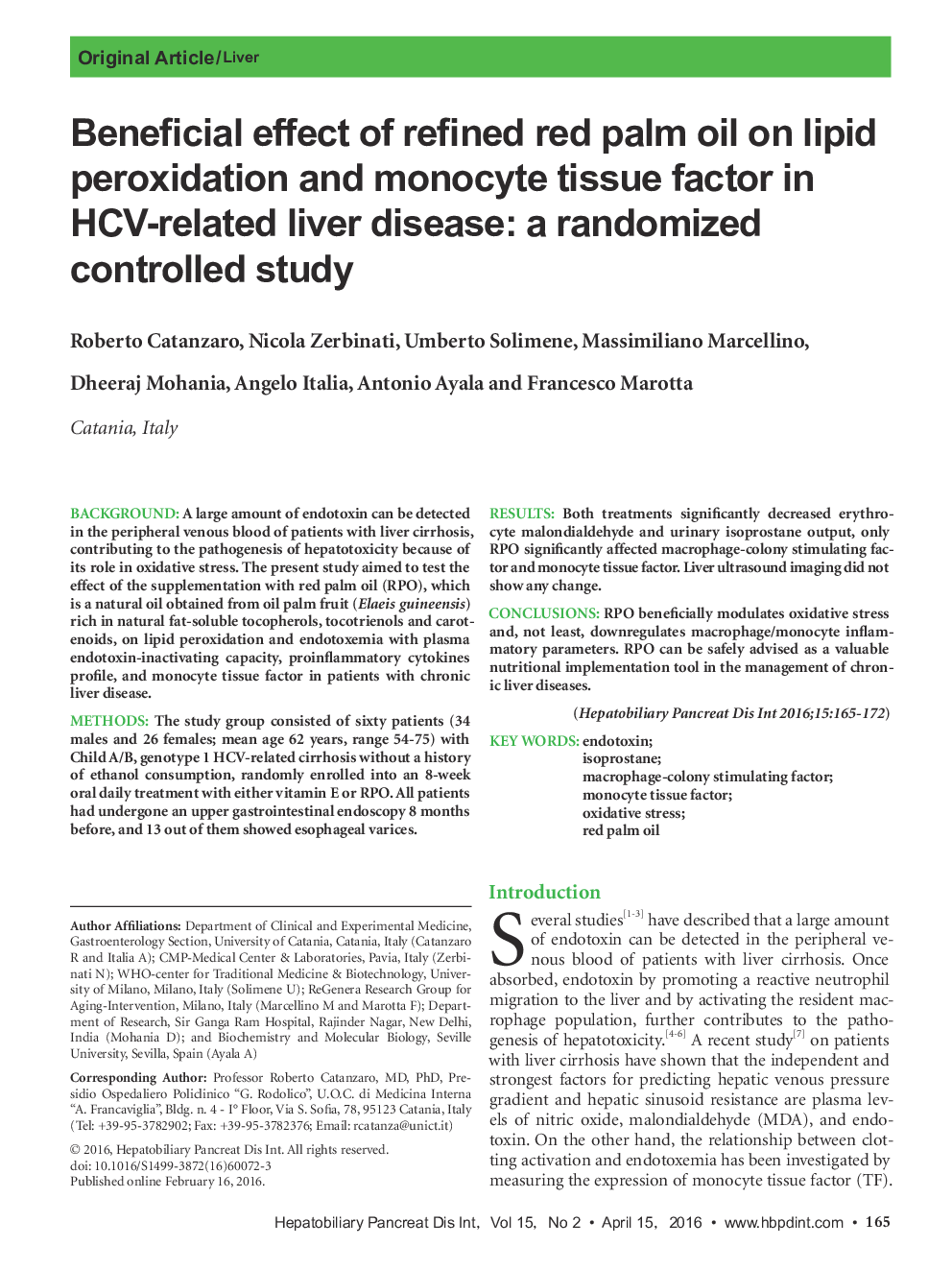| Article ID | Journal | Published Year | Pages | File Type |
|---|---|---|---|---|
| 3337174 | Hepatobiliary & Pancreatic Diseases International | 2016 | 8 Pages |
BackgroundA large amount of endotoxin can be detected in the peripheral venous blood of patients with liver cirrhosis, contributing to the pathogenesis of hepatotoxicity because of its role in oxidative stress. The present study aimed to test the effect of the supplementation with red palm oil (RPO), which is a natural oil obtained from oil palm fruit (Elaeis guineensis) rich in natural fat-soluble tocopherols, tocotrienols and carotenoids, on lipid peroxidation and endotoxemia with plasma endotoxin-inactivating capacity, proinflammatory cytokines profile, and monocyte tissue factor in patients with chronic liver disease.MethodsThe study group consisted of sixty patients (34 males and 26 females; mean age 62 years, range 54-75) with Child A/B, genotype 1 HCV-related cirrhosis without a history of ethanol consumption, randomly enrolled into an 8-week oral daily treatment with either vitamin E or RPO. All patients had undergone an upper gastrointestinal endoscopy 8 months before, and 13 out of them showed esophageal varices.ResultsBoth treatments significantly decreased erythrocyte malondialdehyde and urinary isoprostane output, only RPO significantly affected macrophage-colony stimulating factor and monocyte tissue factor. Liver ultrasound imaging did not show any change.ConclusionsRPO beneficially modulates oxidative stress and, not least, downregulates macrophage/monocyte inflammatory parameters. RPO can be safely advised as a valuable nutritional implementation tool in the management of chronic liver diseases.
